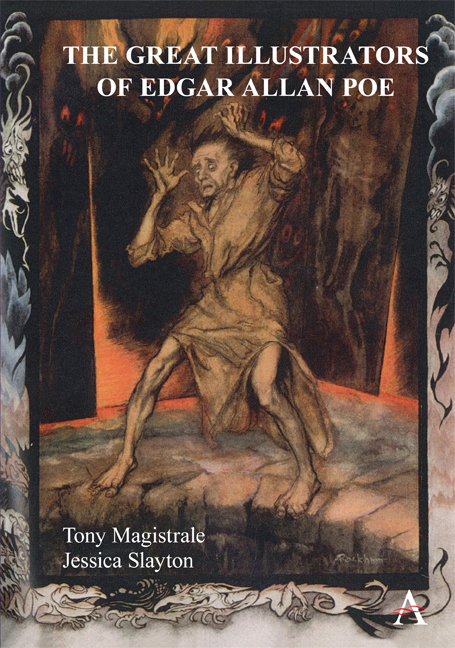2 - Visualizing Poe for a New Century
Published online by Cambridge University Press: 04 June 2021
Summary
French Symbolist poet Paul Valéry noted in 1924 that Poe “would today be completely forgotten if Baudelaire had not taken up the task of introducing him into European literature” (Vines, “Introduction” 1). Even if Valéry's comment is an exaggeration, there is a measure of truth in his assessment, and the potential diminishment of Poe becomes all the more egregious when placed in the context of Poe's immediate posthumous reputation in his native country. While Poe was read, admired, and the recipient of critical attention by Americans during his lifetime and throughout the nineteenth century, his legacy in the United States was compromised after his death due in no small part to the scurrilous and libelous untruths popularized by Poe's contemporary, Rufus Griswold. In the infamous “Memoir” attached to Griswold's abusive death notice of Poe published in 1849 and his 1850 edited four-volume edition of Poe's work, Griswold's association of Poe with drug addiction, insanity, and moral turpitude undermined his literary reputation in puritanical America and dictated critical attitudes toward Poe that would last well into the twentieth century (Griswold).
While the French, particularly Baudelaire, felt a sympathy and kinship with Poe's alienation from American bourgeois culture, which is partial explanation for why he was so deeply revered by them, nineteenth-century American visual artists, literary critics, and creative writers were less inclined to recognize Poe's genius than their European counterparts. As a partial consequence, there were few new Poe collections printed by American publishers— especially when compared to the deluge that would come in the twentieth century— and therefore less opportunity for accompanying illustrations. Griswold continued to complicate and denigrate the legacy of Poe in America as a result of his holding the copyright on Poe's literary works assigned to him on the dubious ground that Poe had desired him to serve as his literary executor. Griswold, as editor for the J. S. Redfield Company of New York, essentially controlled and regulated the distribution and proliferation of most American illustrations of Poe's works until the Griswold-Redfield copyright elapsed in 1884 (Pollin 6). Thus, it was not until the next century that the United States began a reassessment that led to Poe attaining a measure of the artistic status he had garnered in Europe and Russia since his death.
- Type
- Chapter
- Information
- The Great Illustrators of Edgar Allan Poe , pp. 53 - 94Publisher: Anthem PressPrint publication year: 2021



